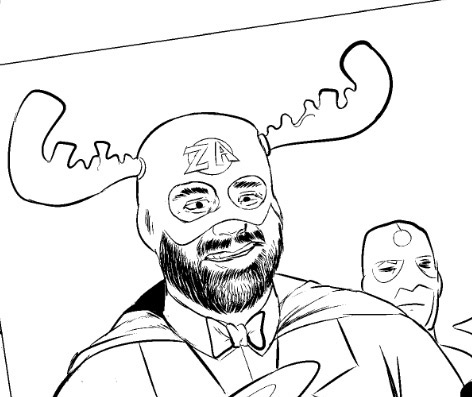I’ve been a bit put off by the generally positive reviews of The Lion, The Witch and The Wardrobe by other Christian bloggers, thinking that perhaps I was too harsh on the movie. However, having stumbled across Steven Greydanus’ review, I feel vindicated.
To quote from Greydanus’ review:
Other changes are even more ill-advised, and sap Lewis’s story of much of its underlying meaning and thematic richness. Most seriously, Aslan, the great and terrible Lion, is robbed of much of his awe-inspiring majesty — not by inherent limitations in translating the story to the screen, but by specific alterations in the screenplay that consistently eliminate references to Aslan’s power and his effect on others.
No longer do the children and the Beavers speak tremulously at the Beaver lodge about how intimidating it will be to meet a Lion, or hang back at Aslan’s camp before approaching him, nudging one another and trying not to be the first to step forward. No longer does Mr. Beaver utter what is arguably the single greatest, most resonant line in the entire book: “Safe? Who said anything about safe? ’Course he isn’t safe. But he’s good. He’s the king, I tell you.†(The “But he’s good†bit is revisited at the end in connection with Tumnus’s line about Aslan not being “like a tame lion,†but the crucial notion of Aslan not being “safe†has been jettisoned.)
No longer does the Witch find the mere mention of Aslan’s name unendurable and threaten to kill anyone who uses it. Nor do Aslan’s enemies repeatedly balk in terror before venturing to bind, muzzle and shave him at the Stone Table.
The screenplay systematically elevates the role of the children and the Witch herself at Aslan’s expense. In the book, when Father Christmas arrived, he said, “She has kept me out for a long time, but I have got in at last. Aslan is on the move. The Witch’s magic is weakening.†In the film, a curiously un-festive, brown-clad Father Christmas (James Cosmo) offers a contrary explanation, attributing his arrival to the Pevensies rather than to Aslan: “The hope brought by Your Majesties is starting to weaken the Witch’s power.â€
Perhaps the single gravest change to the story is one that greatly empowers the Witch at Aslan’s expense. It is simply the eradication of the whole motif of the Witch’s overt fear of Aslan. This is absolutely crucial to the book’s emphasis on the utter lack of parity between the omnipotent Aslan and the powerful but limited Witch. The whole vision of good and evil at work in the story turns on the fact that the Witch is never even close to being a rival or threat to Aslan, any more than Lucifer to Christ himself.
The filmmakers, perhaps motivated by a misguided dramatic notion of needing the villain to be a credible threat to the hero, eliminate practically every indication of the Witch’s fear of Aslan from the story — in the process jettisoning much of the point Lewis was making about the nature and relationship of good and evil.
Skipping a bit:
Perhaps most inexplicable is the film’s half-hearted approach to the reanimation of the enchanted statues in the Witch’s courtyard. So vividly does Lewis describe this scene that the last time I read the book to my kids, I actually had to interrupt the reading to take them outside and set fire to some crinkled-up newspaper to show them what it looked like (to see why, see this review of the 1988 BBC version of the story, which quotes the relevant passage). This is precisely the kind of scene for which God created special effects. One can hardly imagine a filmmaker coming across that scene and not yearning to linger over all those statues gradually coming to life. Why, then, does Adamson give us only one token onscreen reanimation, and consign the rest to off-camera action? What was he thinking?
These aren’t the objections of a purist unwilling to accept departures from the text. The problem is not the filmmakers’ depatures from the letter of the book, but their insensitivity to its spirit, not to mention the sometimes slapdash quality of their storytelling even on its own terms. I don’t mind early scenes establishing Lucy’s apprehension regarding the unseen Professor at whose country estate the children are staying. Yet, having established that dramatic tension, shouldn’t the film have somewhere to go with it? Didn’t anyone notice that it makes no sense to introduce the Professor by having Lucy actually cling to him for comfort during a quarrel with her siblings?
All these missteps add up to the difference between what could easily have been one of the greatest family films of all time, and what is, instead, merely a good one. Though the film misses greatness, even in this diminished form Lewis’s story is still well worth seeing, and the film adds enough to the experience to keep things fresh.
Thank goodness I’m not the only one that was so bothered.




as Heat coach RETROPERSPECTIVE: Like many of the millions who w… Lieberman Vulnerability House pulls an all-nighter The mystery machine Purge I’m Not The Only One! Bush ADMITS that he went to war on faulty intelligence Your Tax Dollars At Work Post to Change Froomkin Identification Lion